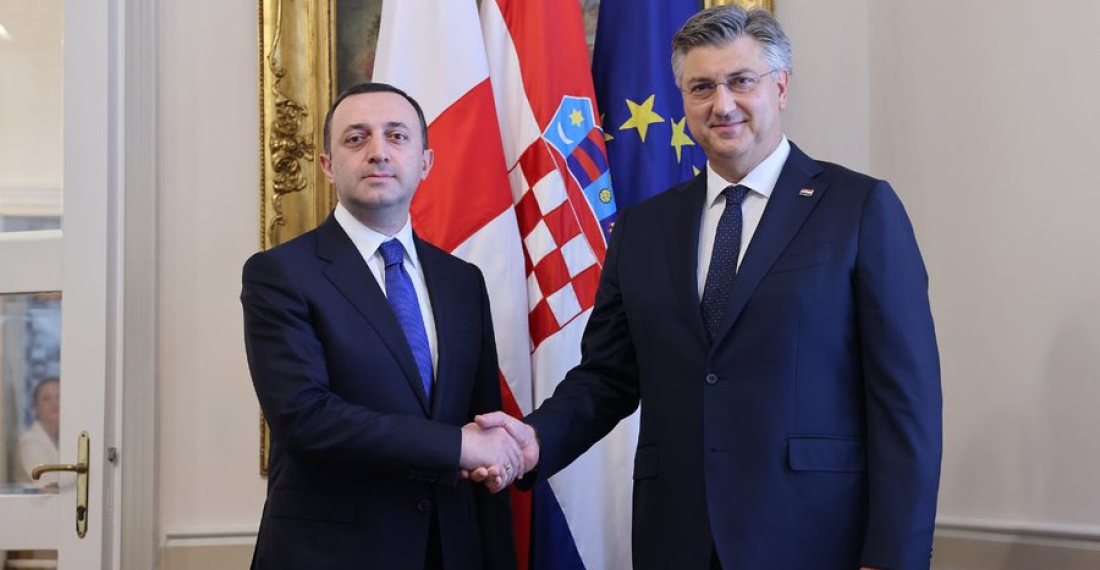Georgian Prime Minister Irakli Garibashvili on Monday (24 July) said his government was “well-aware” that joining the European Union came with “long-term obligations and responsibilities”, and added it was a “long but rewarding process”. He was speaking in the Croatian capital of Zagreb on his first visit to the country.
In a joint press briefing with his Croatian counterpart Andrej Plenković in Zagreb, Garibashvili stressed “we do not shy away from taking these obligations”.
Garibashvili claimed that his government had seen “excellent results” in ensuring rule of law, economic development, social security, and strengthening of state and public institutions over the past decade, adding that the progress had been recognised in rankings by influential international institutions.
Describing Georgia as the EU’s “most reliable partner” in the South Caucasus region, the visiting PM said his country had made a “greatest contribution” to European and international security through participation in NATO-led peacekeeping missions in Iraq and Afghanistan.
“We are committed to the Euro-Atlantic integration process. I would like to emphasise that as a NATO aspirant country, Georgia has made significant progress on the path and has repeatedly proven it is capable of sharing the burden of collective defence”, Garibashvili said.






